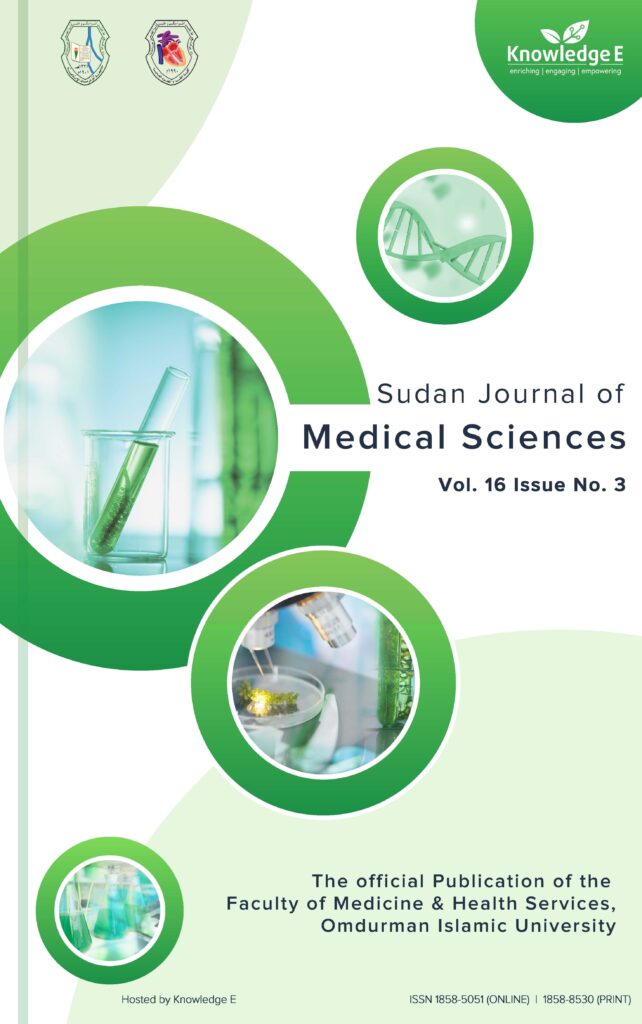
Sudan Journal of Medical Sciences
ISSN: 1858-5051
High-impact research on the latest developments in medicine and healthcare across MENA and Africa
Letter to the Editor
Published date:May 13 2020
Journal Title: Sudan Journal of Medical Sciences
Issue title: SJMS Special Issue 2020: Competing with COVID-19 in Sudan
Pages:5 - 8
Authors:
Abstract:
One of the most serious complications of the coronavirus disease 2019 (COVID-19) is acute severe respiratory syndrome mandating intensive care admission and assisted ventilation [1]. Pneumonia, hypoxemic respiratory failure and acute respiratory distress (ARDS), shock, and multi-organ failure, are the most common complications of severe COVID-19, along with the complications associated with prolonged hospitalization – including secondary nosocomial infection, thromboembolism, gastrointestinal bleeding, and critical illness polyneuropathy and myopathy [2].
References:
[1] Guan, W.J., et al. (2020). Clinical Characteristics of Coronavirus Disease 2019 in China. N. Engl. J. Med.
[2] Coronavirus Disease 2019 (COVID-19). Centers for Disease Control and Prevention. 2020 [cited 1 April 2020]. Available from:https://www.cdc.gov/coronavirus/2019-ncov/hcp/clinical-guidance-management-patients.html
[3] Greenland, J., Michelow, M., Wang, L. and London, M. (2020). COVID-19 Infection: Implications for Perioperative and Critical Care Physicians. Anesthesiology. [Epub ahead of print]. doi: https://doi.org/10.1097/ALN.0000000000003303
[4] Association of Anesthetists. (2020).Anesthetic Management of Patients During a COVID- 19 Outbreak. Available from:https://anaesthetists.org/Home/Resources-publications/Anaesthetic-Management-of-Patients-During-a-COVID-19-Outbreak.
[5] Platts-Mills, T.F.et al. (2009). A comparison of GlideScope video laryngoscopy versus directlaryngoscopy intubation in the emergency department. Acad. Emerg. Med., vol. 16, issue 9, pp. 866-871.
[6] Ejaimi, G., et al. (2020). A Step Ahead for Difficult Airway Management Using GlideScope®: A Prospective, Randomised, Comparative Study. Euro. Med. J. Innov., vol. 4, issue 1, pp. 57-62.